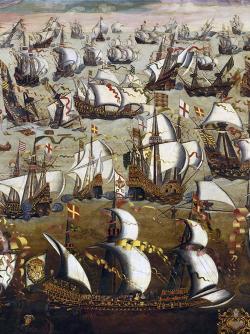Questions and Answers
Did God Tell Peter to Eat Unclean Animals?
Question: In Acts 10:9–16, is God giving Christians permission to eat what were previously considered “unclean” animals (as defined in Deuteronomy 14:3–21 and Leviticus 11:1–47)?
Answer: What was the purpose of the vision God gave to the Apostle Peter? Was God showing that He was now making “clean” the meats He had previously said were “unclean”? Or was there a different purpose for this vision?
One important key to understanding Scripture is to examine passages in context, which may include the historical setting as well as the narrative itself. The historical setting of Acts 10 is the New Testament Church in the very early years of its existence. The Apostles had begun to carry out the great commission Jesus gave them, to make disciples of all nations and to preach the Gospel to everyone (Matthew 28:18–20). At the time of Peter’s vision, this commission was about to extend to the Gentiles as never before.
Since the time of the Exodus, many centuries before, religiously observant Jews would have nothing to do with Gentiles. Unlike the Jews, Gentiles were not circumcised. Gentiles did not observe the commandments and statutes of the God of Israel, and they did not worship Israel’s God. Gentiles were considered “unclean” and Jews would not associate with them.
Now, consider the context of Peter’s vision. In Acts 8, God led the evangelist Philip to baptize an Ethiopian eunuch—a Gentile. Then follows a description of Saul’s conversion. Saul, who had been persecuting the Church, would become Paul, the Apostle to the Gentiles.
Next, in Acts 10, a Gentile named Cornelius was given a vision inspiring him to contact Simon Peter (Acts 10:1–8). Soon, Peter was also given a vision. Peter saw a large sheet filled with both clean and unclean animals lowered from heaven. He was told to kill and eat them. This happened three times. Peter protested, saying that he had never eaten anything unclean (vv. 11–14). He did not interpret the vision as meaning he could now eat meat from unclean animals; rather, he wondered about the vision’s meaning (vv. 17–19).
The meaning of the vision was made clear by what happened next. Peter received as guests the men Cornelius had sent, lodging them overnight (v. 23) and journeying with them to see Cornelius. He explained that even though it was against Jewish law to mingle with Gentiles, through the vision of the sheet and the animals, “God has shown me that I should not call any man common or unclean… In truth I perceive that God shows no partiality. But in every nation whoever fears Him and works righteousness is accepted by Him” (vv. 28, 34–35).
During this visit, Cornelius and those of his household received the Holy Spirit (v. 44). Peter, who previously had kept his distance from Gentiles, now had to acknowledge that God was indeed working with Gentiles, and Peter understood that he had a responsibility to baptize non-Jewish individuals.
News of this milestone travelled fast to the other Apostles, and to the brethren in Judea. It was “big news” that Gentiles had also received the word of God (Acts 11:1). Yet, for a time, there was still some controversy. When Peter visited Jerusalem, some expressed their objection that he had not just associated with the uncircumcised Gentiles—who, under Jewish law were considered “unclean”—but had actually eaten with them. Peter then explained to his critics the vision he had received and the events that had followed, revealing the meaning of the sheet of unclean animals.
Peter concluded, “If therefore God gave them [the Gentiles] the same gift as He gave us when we believed on the Lord Jesus Christ, who was I that I could withstand God?” And then they all concluded, “Then God has also granted to the Gentiles repentance to life” (vv. 17–18).
This was the reason for, and meaning of, the Apostle Peter’s vision. This was how he understood it. His understanding was then shared with the other Christians who heard his description of what had occurred. The vision did not reveal that unclean animals could now be eaten as food; it revealed that the Gentiles—previously considered “unclean” by the Jews—were now being granted salvation by the God of Israel.






